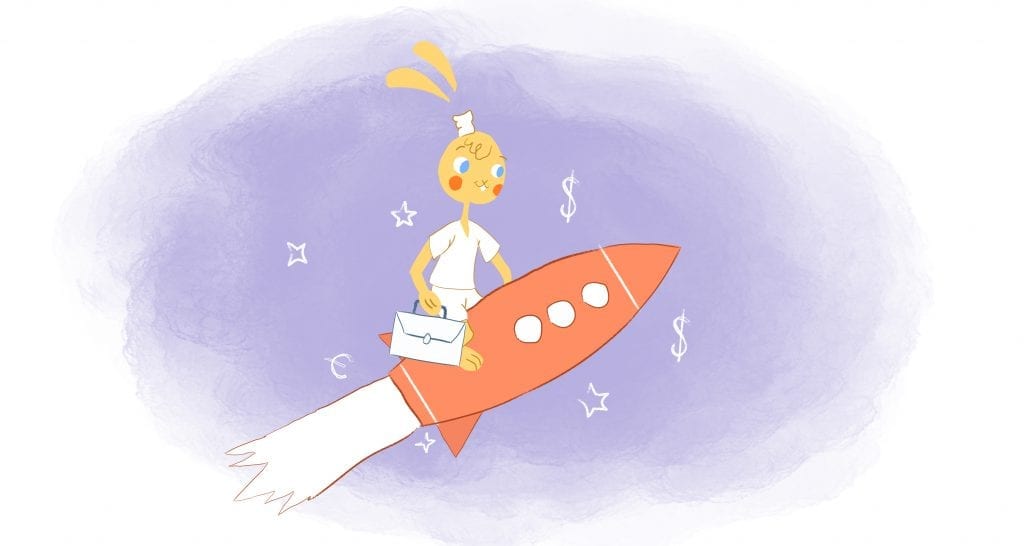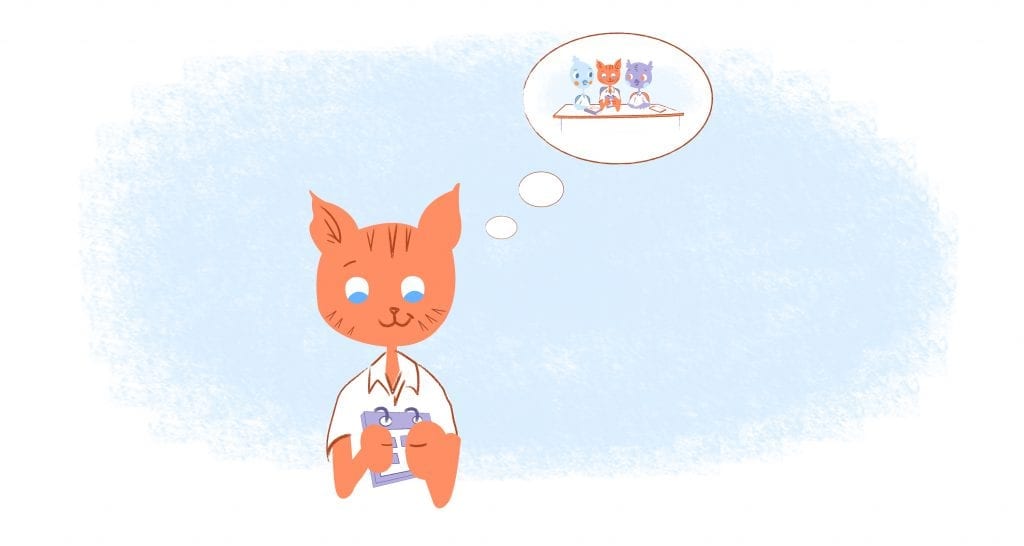

As defined in a previous Calendar article, happiness is “both an emotion and a state. It’s a subjective term used to describe a wide-range of positive emotions, such as joy, pride, contentment, and gratitude.” Simply put there are many ways to become a happier person. And being a happier person increases productivity.
Regardless of the definition, being happy makes you feel spectacular. It can boost your productivity, which in turn will make you more successful.
Sonja Lyubomirsky, author of The How of Happiness, further describes happiness as “the experience of joy, contentment, or positive well-being, combined with a sense that one’s life is good, meaningful, and worthwhile.”
A study by economists at the University of Warwick found that happiness led to a 12 percent boost in productivity, while unhappy workers were 10 percent less productive. The research team stated, “We find that human happiness has large and positive causal effects on productivity. Positive emotions appear to invigorate human beings.”
But, why exactly are happier individuals more productive? It’s because of the following nine reasons.
1. The brain works better when you feel positive.
This is based on research found by Shawn Achor, author of The Happiness Advantage.
“We found that optimism is the greatest predictor of entrepreneurial success because it allows your brain to perceive more possibilities,” said Achor. “Only 25 percent of job success is based upon IQ. Seventy-five percent is about how your brain believes your behavior matters, connects to other people, and manages stress.”
In other words, when you’re happier you become more creative and smarter.
2. Happy people are more creative and better at solving problems.
Additional research has also proven that happiness can help you become more creative and develop stronger problem solving skills.
Professor Teresa Amabile says,”if people are in a good mood on a given day, they’re more likely to have creative ideas that day, as well as the next day, even if we take into account their mood that next day.”
“There seems to be a cognitive process that gets set up when people are feeling good that leads to more flexible, fluent, and original thinking, and there’s actually a carryover, an incubation effect, to the next day,” adds Professor Amabile
3. Happier people are healthier.
I don’t know about you, but if I’m feeling under the weather I’m definitely not at peak productivity. It’s a real challenge to stay focused and maintain enough energy to get through the day.
Thankfully, happiness can improve your immune system. Even if you do catch something, and are in good spirits, the symptoms are usually not as severe. So, it’s true. Laughter is the best medicine.
4. When you’re happy you work harder.
Dr. Daniel Sgroi from the Department of Economics at the University of Warwick who was involved the research mentioned above said, “The driving force seems to be that happier workers use the time they have more effectively, increasing the pace at which they can work without sacrificing quality.”
5. Happy people get along better with others.
I don’t think you need much evidence to back this up. Who would you rather spend more time with, an optimist or pessimist?
Because happier people tend to be more fun around with they can collaborate more effectively with their colleagues, get along better with managers, and improve customer satisfaction.
6. Happy people make better, faster decisions.
Back in 2011 researchers Paul Herr and Derrick Davis of Virginia Tech, Christine Page of Skidmore College, and Bruce Pfeiffer of the University of New Hampshire conducted a study that found that shoppers made faster and more consistent decisions when shopping. The reason? They were able to determine what they liked and disliked at first glance.
More recently, research from Swarthmore College found that satisfiers (those have a set of criteria and go for the best option) tend to be happier than maximizers (those who want the absolute best option).
The first reason this is true is that people who want the best are often to prone to regret. “If you’re out to find the best possible job, no matter how good it is, if you have a bad day, you think there’s got to be something better out there,” says Barry Schwartz, a professor at the University of California, Berkeley and author of The Paradox of Choice.
Secondly, maximizers measure themselves against others. “If you’re looking for the best, social comparison is inevitable,” says Schwartz. “There’s no other way to know what the best is.”
7. When you’re happy you’re more optimistic and motivated.
Martin Seligman’s work in positive psychology has found that happy people have a more positive and optimistic outlook.
As a result they lead better lives, are healthier, have more friends, and tend to be more productive and successful. Additionally, those who are happy are more motivated than those who are not.
8. Happy people make fewer mistakes.
When you’re happy at work, you’re also content, confident, and secure.
This means that you realize that it’s not the end-of-the-world if you make a mistake. You admit your mistake, learn from it, and move it — instead of harping on it.
Interestingly, when you’re not obsessing about what you’re doing wrong or your past mistakes, you end-up making fewer mistakes. This makes you more productive since you don’t have go back and correct your work.
9. Love what you do.
“When we’re totally immersed in work or projects that are challenging, invigorating, and meaningful we experience being in our ‘zone,’” writes psychologist and author Sherrie Campbell.
“Happiness is most deeply experienced in the workplace when we are totally absorbed and caught up in what we’re doing. When we love what we do, the ‘work’ becomes our passion, and the financial abundance the great side effect.”
In order to to love you career, you need to see your career as something that you’re willing to do. After all, we’re “most productive when we are doing what we want to do, rather than what we’re forced to do.”
How to Promote Workplace Happiness.
What makes people happy varies from person-to-person. But, here’s a couple of ways that you can promote happiness in your workplace.
- Foster meaningful relationships. According to Harvard Business Review, “close work friendships boost employee satisfaction by 50 percent.” What’s more, “people with a best friend at work are seven times more likely to engage fully in their work.” Build teams that will foster friendships, while using your current team to tap new talent. For example, if a member has a solid working relationship with a former colleague and friend, bring that individual into your organization.
- Show appreciation. Thank your team for their hard work. This could be anything from a handwritten “thank you” card to gift cards to team outings.
- Make a pleasant and comfortable work experience. Allow your team to decorate their workplaces, have frequent informal meetings, and resolve workplace conflicts ASAP. For example, if two team members aren’t getting along you could move them to different sides of the office so that they’re not interacting with each other as much.
- Set clear expectations. “Make sure you communicate effectively about job roles and what you expect,” writes Choncé Maddox. “If you notice any issues or slip-ups early on, be sure to address them so everyone is on the same page.”
- Be responsible for your own happiness. Even though you can promote happiness in the workplace, ultimately you’re in control of your own happiness. Turn to to the things that make you happy and use them to your advantage in the workplace.











Deanna Ritchie
Editor-in-Chief at Calendar. Former Editor-in-Chief and writer at Startup Grind. Freelance editor at Entrepreneur.com. Deanna loves to help build startups, and guide them to discover the business value of their online content and social media marketing.